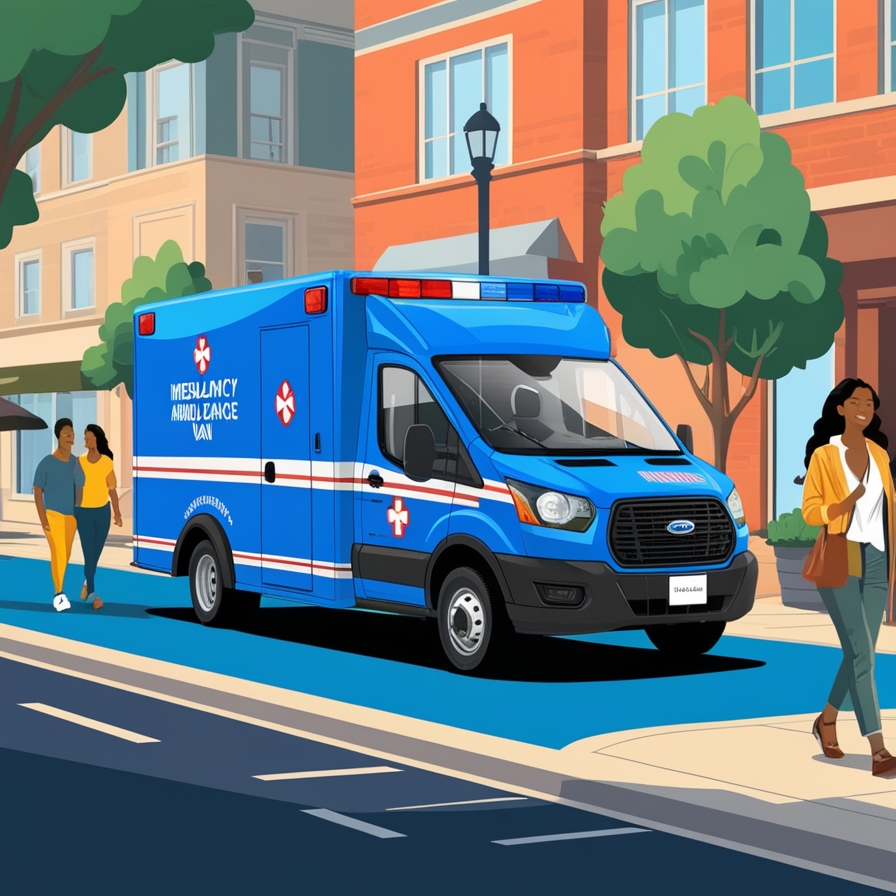Why Ambulatory Services Matter
Ambulatory services ensure patients receive safe and reliable transportation for non-emergency medical needs, improving healthcare access.
Ambulatory services are a critical component of healthcare, providing transportation for individuals who need medical attention but do not require an emergency response. These services help patients get to medical appointments, therapy sessions, and other healthcare facilities, ensuring they receive timely care without unnecessary delays.
Enhancing Mobility for Patients
Many people, especially seniors and individuals with disabilities, struggle with transportation due to mobility limitations. Public transport and regular ride-sharing services are often not equipped to handle their needs. Ambulatory services cater to these patients by offering specialized vehicles and trained staff, ensuring a smooth and comfortable journey.
Reducing Missed Appointments and Improving Health Outcomes
Missed medical appointments can lead to serious health complications, especially for patients with chronic conditions like diabetes, heart disease, or kidney failure. Ambulatory services provide a reliable transportation option that reduces missed visits, helping patients adhere to their treatment plans and improve overall health outcomes.
A Cost-Effective and Safe Alternative
While emergency ambulance services are necessary in life-threatening situations, they are not always required for routine medical visits. Ambulatory services offer a more affordable option for non-emergency medical transport, reducing healthcare costs while maintaining a high level of safety and patient care. Insurance and Medicaid often cover these services, making them accessible to a wider range of patients.
Conclusion
Ambulatory services are more than just a means of transportation—they are a lifeline for individuals who need consistent access to medical care. By providing safe, affordable, and reliable transport, these services play a key role in supporting patient health and improving overall healthcare efficiency. As demand for non-emergency medical transportation grows, ambulatory services will continue to be an essential part of the healthcare system.
Related Posts

The Role of Air Ambulance in Non-Emergency Patient Transport
Air ambulances offer safe, efficient non-emergency...


Why Wheelchair Transport Matters for Medical Appointments
Wheelchair transport services provide essential support...

Stretcher Transportation for Non-Emergency Medical Transportation
Stretcher transportation ensures safe, comfortable,...

How Wheelchair Transport Services Ensure Safe and Comfortable Medical Travel
Wheelchair transport services provide safe, accessible,...

How Ambulatory Services Enhance Non-Emergency Medical Transport
Ambulatory services provide safe, comfortable, and...

How Air Ambulance Services Support Non-Emergency Medical Transport
Air ambulance services provide safe and comfortable...

Choosing the Right NEMT Provider: Factors to Consider for Safe Transport
Selecting the right Non-Emergency Medical Transportation...

Why Non-Emergency Medical Transportation (NEMT) is Essential for Patients
Access to reliable healthcare should never be a challenge....

How Non-Emergency Medical Transportation is Revolutionizing Wheelchair Accessibility
Non-emergency medical transportation (NEMT) is playing...

The Role of Wheelchair Services in Ensuring Safe Non-Emergency Transportation
Wheelchair services in non-emergency medical transportation...

The Essential Role of Stretcher Services in Non-Emergency Medical Transport
Stretcher services in non-emergency medical transport...

Top Benefits of Air Ambulance in Non Emergency Medical Transportation
Air ambulance services are not just for emergencies—they...

Safe, and Reliable Wheelchair Transportation
Care Ride Nationwide offers safe, reliable, and comfortable...

